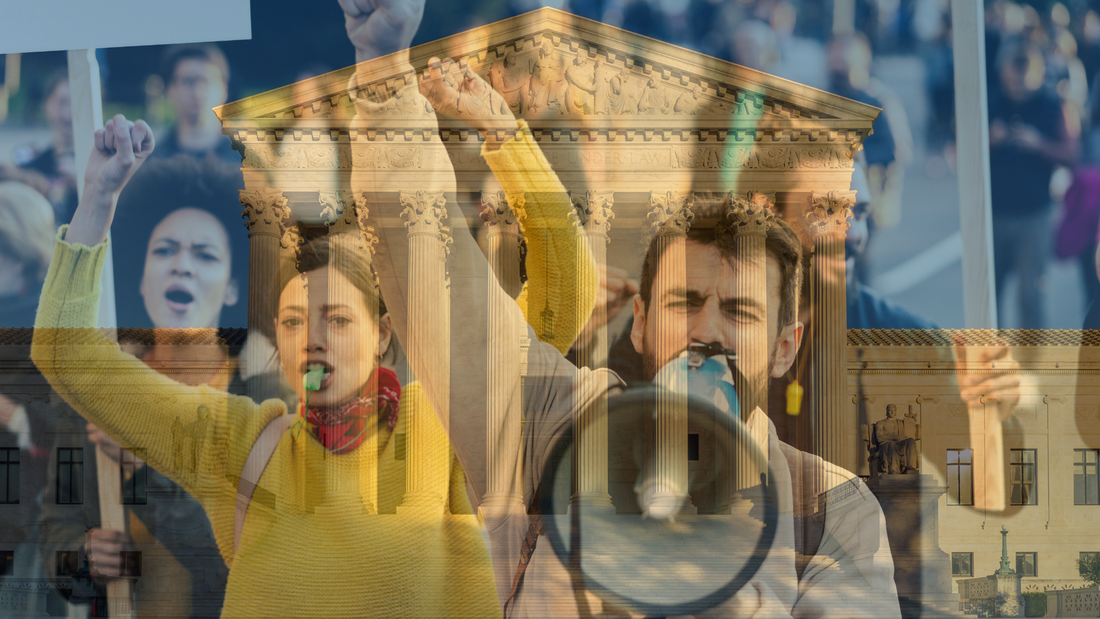|
Can a protest organizer be held civilly liable for the unlawful actions of another at a demonstration? That’s the question at issue in McKesson v. Doe, one with significant implications for protected speech.
The case’s circuitous journey through the courts started in 2016, when an anonymous Louisiana law enforcement officer was struck with a “rock-like” object hurled by an unknown person at a Black Lives Matter protest. This was a despicable act of violence that was in no sense expressive speech. Those who commit such acts of violence must be prosecuted to the fullest extent of the law. But what is the liability of those who organize a peaceful protest that is infiltrated by the violent? Plaintiff John Doe brought suit against activist DeRay McKesson, who organized the event, on the theory that McKesson’s role as the event organizer encompassed a duty to protect everyone present. In 2020, the U.S. Supreme Court vacated the Fifth Circuit’s decision against McKesson, which upheld a novel theory from Doe of “negligent protest.” The Court remanded the case to the Louisiana Supreme Court, instructing it to analyze whether state law actually provides for negligence liability in such situations. This decision seems to ignore precedent in NAACP v. Claiborne Hardware, which held that “[c]ivil liability may not be imposed merely because an individual belonged to a group, some members of which committed acts of violence.” The Louisiana Supreme Court ultimately reached the conclusion that state tort law does, in fact, provide Doe with a cause of action. As a result, the Fifth Circuit reinstated its ruling and the case returned again to the highest court in the land. Notably, the Supreme Court ruled in the intervening years in Counterman v. Colorado that a subjective, mens rea standard (meaning specific intent, not just negligence) is required for a finding of liability in lawsuits that seek to punish speech. Justice Kagan wrote that the “First Amendment precludes punishment, whether civil or criminal, unless the speaker’s words were ‘intended’ (not just likely) to produce imminent disorder.” Accordingly, in an order rejecting certiorari in the McKesson case earlier this month, Justice Sotomayor strongly implied that the Court has already settled this question of law. She wrote, “Although the Fifth Circuit did not have the benefit of this Court’s recent decision in Counterman when it issued its opinion, the lower courts now do. I expect them to give full and fair consideration to arguments regarding Counterman’s impact in any future proceedings in this case.” The Supreme Court clearly wants to allow some deference to state law. However, it seems entirely reasonable to require a showing of intent in situations involving the random outbreak of violence at protests. Failure to do so could have a significant, chilling effect on political speech. If civil liability can be assigned for merely organizing an event, then we’re likely to see a lot less civil discourse in the future. Journalists have similar concerns. As the Reporters Committee for Freedom of the Press explains, protecting against liability for the “uncoordinated,” lawless actions of others “is a critical safeguard for reporters who attend tumultuous events where violence may break out — political rallies, say, or mass demonstrations — in order to bring the public the news.” It remains possible the Fifth Circuit may reevaluate its ruing in light of Counterman, but it’s disappointing that the Supreme Court declined to weigh-in in a meaningful way. When states start imposing low liability thresholds on protestors, it jeopardizes First Amendment protections for all of us. Comments are closed.
|
Archives
June 2024
Categories
All
|
ABOUT |
ISSUES |
TAKE ACTION |



 RSS Feed
RSS Feed